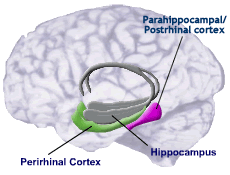But what are they in the first place, anyway?
 |
| Hiccups can also be...terrifying? (Watch the kitten on the right.) Pretty nice image to tie in National Cat Day (today), Halloween (Saturday), and the topic of this post, eh? Reddit (anfea2004) |
When we breathe normally, air is drawn into the lungs thanks to the contraction of the diaphragm, a sheet of muscle that extends just under the lungs. This contraction is controlled by the firing of the phrenic nerve.
With hiccups, the phrenic nerve becomes irritated, resulting in erratic, involuntary contractions of the diaphragm. The spasm is so strong that it causes us to draw in a quick breath and our vocal cords to close briefly, resulting in the characteristic (read: embarrassing) "HIC!" sound.
 |
| Mayo Foundation for Medical Education and Research |
What's the best way to treat hiccups? For more persistent hiccups, medication is available to calm the phrenic nerve, though no single drug has been proven particularly effective.
For your everyday, run-of-the-mill hiccups, grandma's remedies are best. Increasing the partial pressure (volume per area) of carbon dioxide — like holding your breath or breathing into a paper bag — stops hiccups for many people, though the mechanism isn't entirely clear. Some people find success in stimulating another nearby nerve, the vagus nerve, by eating dry bread, a spoonful of peanut butter, or other foods that are a bit harder to swallow.
The World Record for longest hiccups is held by Charles Osborne. The hiccups began in 1922 just as Osborne went to weigh a hog before slaughtering it. “I was hanging a 350 pound hog for butchering. I picked it up and then I fell down. I felt nothing, but the doctor said later that I busted a blood vessel the size of a pin in my brain.”
It's thought that this burst vessel affected an area of the brain that helped inhibit hiccups. Unable to find a cure for 68 years, they finally ceased on their own in 1990. He died just a year later. It's estimated that he experienced 430 million hiccups during this time.
How do you cure your hiccups? Let me know in the comments!




